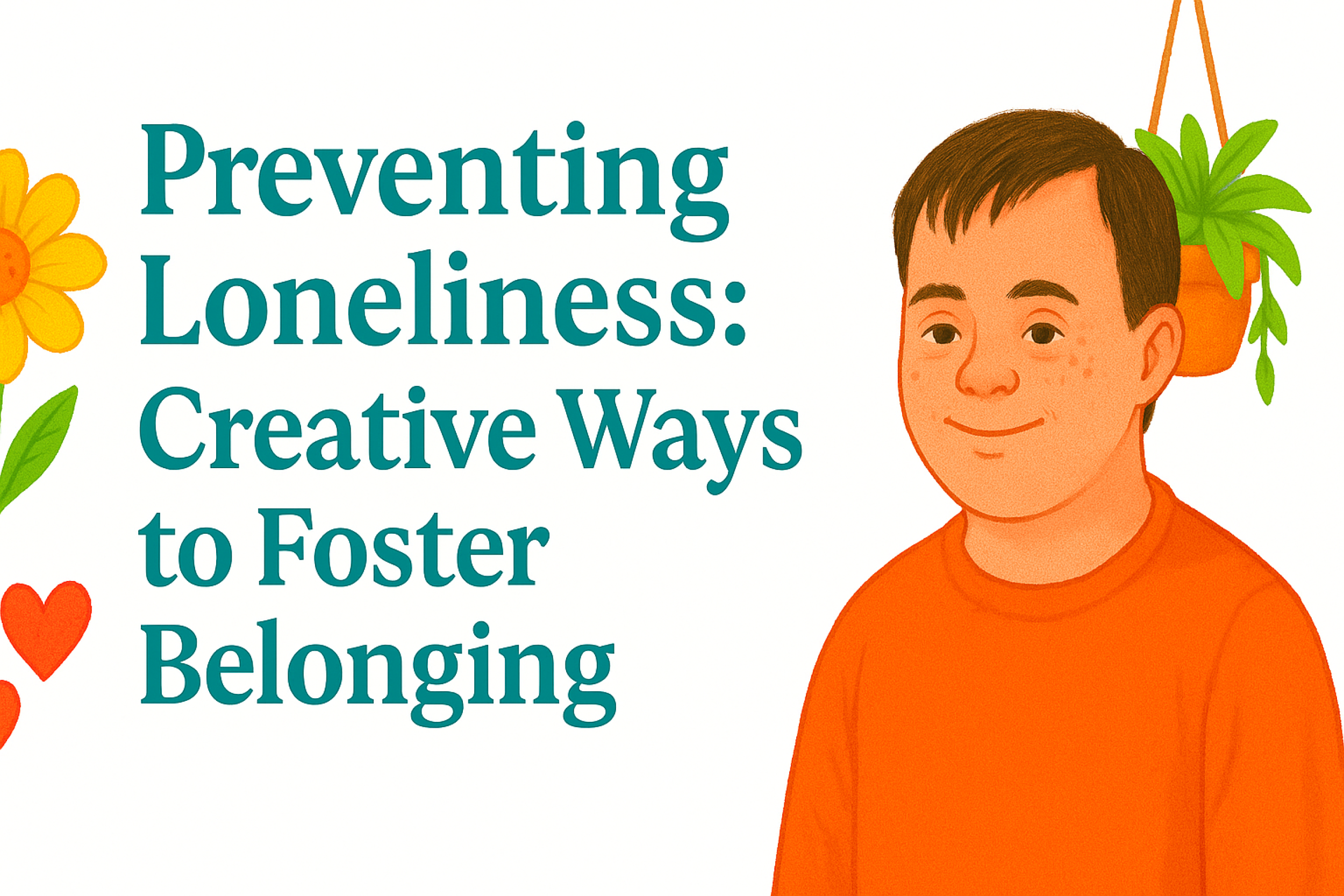Preventing Loneliness: Creative Ways to Foster Belonging
Preventing Loneliness: Creative Ways to Foster Belonging
Loneliness can affect anyone—but for adults with learning disabilities, the risk can be greater. Barriers such as communication challenges, limited opportunities for social connection, or reliance on others for transport and support can make it harder to build and maintain meaningful relationships. But belonging is not just about being around people—it's about feeling seen, heard, and valued.
In supported living environments, fostering belonging isn’t just a nice idea—it’s a vital part of living well. Here are some creative, practical ways we can help prevent loneliness and build stronger, more connected communities.
1. Turn Everyday Moments into Social Opportunities
Belonging doesn’t always start with big events. It starts with simple, daily interactions that make people feel included. Think about how support staff and housemates say good morning, ask about each other’s day, or share tasks like cooking dinner or watering plants. These everyday moments, when done with intention and warmth, can build trust and connection.
Try this: Start a “Good News Board” in the house where everyone can share something positive—big or small—about their day or week.
2. Use Creativity to Connect
Art, music, and storytelling are powerful tools for expression—especially for people who might find verbal communication difficult. Hosting regular creative sessions can give people a chance to share who they are and what matters to them.
Try this: Run a weekly "Show & Share" afternoon where people can bring something special (a photo, a drawing, a favourite object) and talk about why it matters to them.
3. Get Out into the Community
Being part of the wider community helps people feel included, not just in their homes but in the world around them. Visiting local cafés, volunteering, attending events, or joining groups tailored to individual interests can all help build a sense of belonging.
Try this: Find a local group or activity based on someone’s hobbies—like a walking club, board games night, or gardening group—and go together the first few times to help ease the transition.
4. Celebrate Everyone’s Role
In shared homes, it’s important that everyone feels they contribute something meaningful. Giving people choices and responsibilities builds confidence and strengthens relationships.
Try this: Create rotating weekly roles—such as “music DJ,” “plant waterer,” or “tea-time buddy”—to make each person feel involved in creating a warm, shared environment.
5. Reconnect with the Past, Celebrate the Present
Life stories matter. They give us a sense of identity and help others understand who we are. Reconnecting with someone’s personal history and culture can spark meaningful conversations and help build closer bonds.
Try this: Put together a “Life Book” for each person, filled with photos, memories, favourite songs, and fun facts. Use it as a conversation starter with new staff or visitors.
6. Make Room for Quiet Connections
Not everyone connects in the same way. Some people thrive in group settings; others prefer one-to-one time or quieter moments. Creating space for both kinds of interaction is key to helping everyone feel they belong.
Try this: Offer “companionable silence” sessions like listening to music together, doing puzzles side-by-side, or going for a quiet walk—no pressure to talk, just shared presence.
7. Listen Deeply and Often
People are less likely to feel lonely when they know someone genuinely listens to them. This means more than just hearing words—it’s about noticing moods, being curious, and following up.
Try this: Set aside time each week to check in with each person about how they’re feeling, what they’re enjoying, and what they’d like more of in their lives.
Belonging Starts with Us
Preventing loneliness isn’t only about adding more social activities—it’s about creating a culture of welcome, empathy, and respect. Whether you’re a support worker, a family member, or part of the wider community, you have the power to help someone feel they truly belong.
When people feel connected, they flourish. And when we work together to build inclusive, compassionate spaces, we all benefit.

